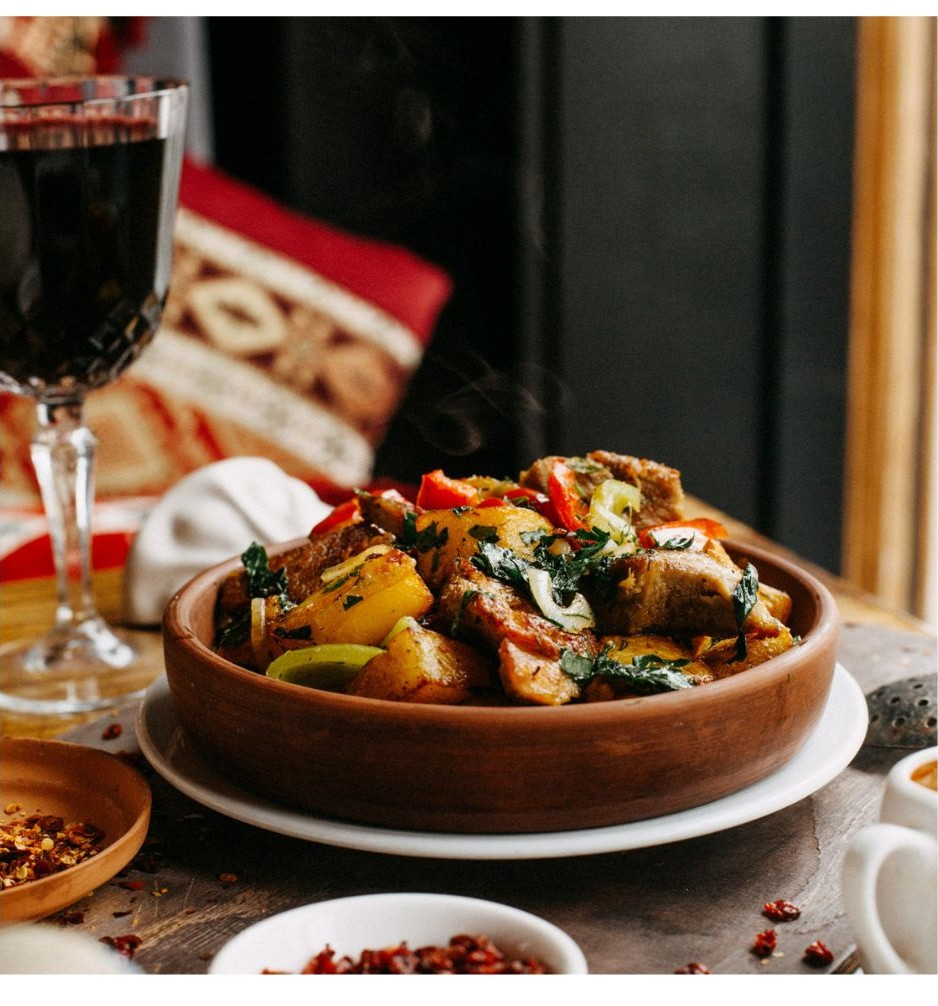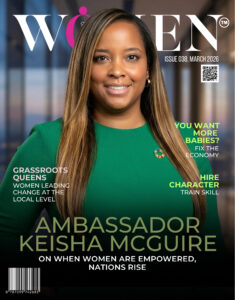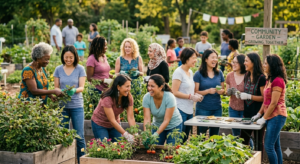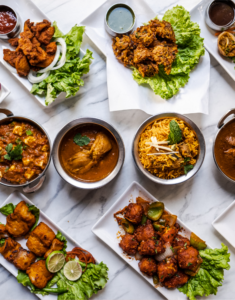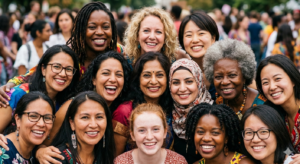By Sunday Samuel
In Africa, celebrations are not just about the event, they’re about the experience, and food is at the heart of that experience. Whether it’s a wedding, naming ceremony, festival, or even a funeral, one thing is certain: you will eat, and you will eat well.
“Chop life” isn’t just a slang, it’s a lifestyle, a declaration of joy, abundance, and shared community. But beyond the jollof and pepper soup, food in African celebrations holds deep cultural significance, binding generations, tribes, and values with every bite.
Food as Identity and Pride
Across the continent, food is a powerful symbol of identity. In Nigeria alone, the diversity is breathtaking. A Yoruba owambe would be incomplete without amala and ewedu, while an Igbo traditional marriage is known for ofe nsala or bitterleaf soup with fufu. In the north, tuwo shinkafa served with miyan kuka graces every big occasion.
These dishes are more than meals, they’re expressions of heritage. They communicate love, honor, and belonging. The way food is prepared, served, and received speaks volumes about values, respect, and tradition.
The Women Behind the Pots
At the center of this culinary theater are women, aunties, mothers, grandmothers, caterers, and market women, who carry the ancestral wisdom of spice combinations, slow cooking, and knowing when the stew is “done by aroma.”
These women don’t just cook; they curate experiences. They know that small chops must arrive early to “open stomach,” that the jollof must never finish before the couple’s first dance, and that no party is complete without the cooler of “takeaway.”
In many families and communities, culinary skill is a badge of honor. Recipes are passed down orally, and some ingredients are sourced with spiritual precision. It’s more than food, it’s a legacy.
A Medium for Unity and Storytelling
One plate of food can unify a village. A dish can carry memory. It’s not rare to hear, “This reminds me of my grandmother,” or “This is what we ate during my naming ceremony.”
In cross-cultural marriages, food becomes a bridge. Yoruba and Igbo dishes side by side on the buffet tell a story of unity in diversity. At festivals like Calabar Carnival or Osun-Osogbo, food is a cultural display, a sensory tour of the people’s history.
The Rise of Culinary Creativity
While tradition holds strong, a new generation of African women is bringing innovation to the table, literally. Think jollof risotto, afang spring rolls, kunu cocktails, and vegan takes on classic dishes. Through food blogs, YouTube, and Instagram, women are curating modern African cuisine that keeps culture alive while embracing creativity.
Caterers are now brand-builders. Food vendors are influencers. And that auntie who once fed a village with a coal stove? She might now be shipping moi moi to customers in London.
When We Eat, We Celebrate Life
African celebrations are not just events; they’re expressions of life, and food is the language. In every plate, there’s history. In every spice blend, there’s a story. And in every mouthful, there’s a memory being made.
So whether you’re at a Ghanaian outdooring, a Senegalese naming ceremony, or a Naija wedding where the jollof slaps harder than the DJ’s mix, know this: you are not just eating; you are participating in culture, connection, and the celebration of life.

